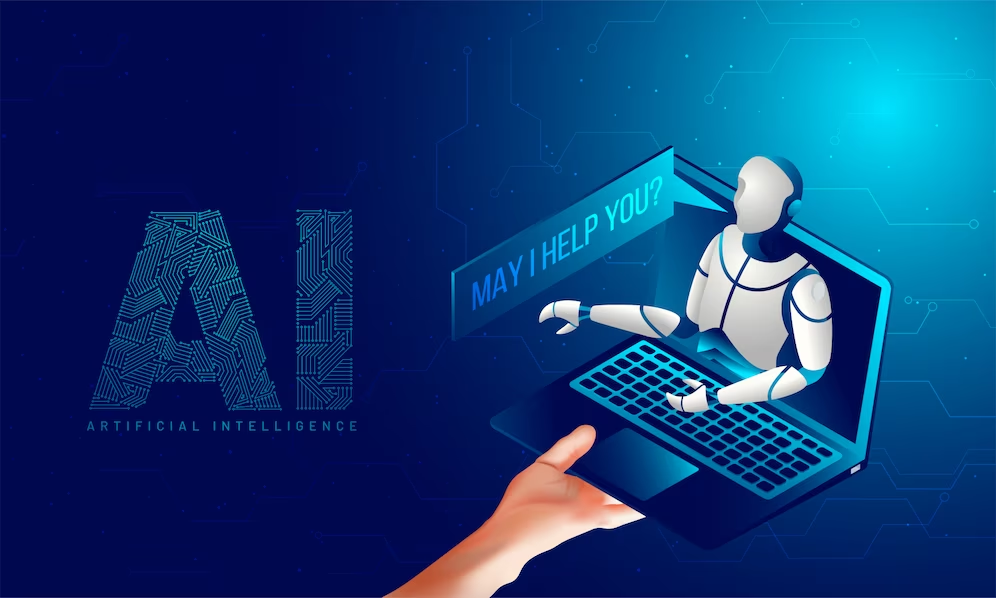Artificial Intelligence (AI) has transcended its status as a mere buzzword to become an indispensable tool across various industries. Its ability to analyze vast amounts of data, recognize patterns, and make predictions has revolutionized how businesses operate and serve their customers. From healthcare to finance, education to manufacturing, AI services are unlocking new possibilities and driving innovation. In this article, we delve into practical applications and case studies that illustrate the transformative power of AI services.
1. Healthcare:
AI is revolutionizing healthcare by improving diagnostics, personalizing treatment plans, and enhancing patient care. One remarkable example is the application of AI in medical imaging. Companies like Arterys and Aidoc use AI algorithms to analyze medical images such as MRI scans and X-rays, enabling faster and more accurate detection of abnormalities like tumors or fractures. This not only expedites diagnosis but also assists healthcare providers in delivering timely interventions, ultimately saving lives.
2. Finance:
In the finance sector, AI is reshaping how organizations manage risk, detect fraud, and optimize investment strategies. Take the case of Wealthfront, a robo-advisor platform that utilizes AI algorithms to provide personalized investment advice. By analyzing user data, including financial goals and risk tolerance, Wealthfront creates diversified portfolios tailored to individual needs, all without the need for human intervention. This democratization of wealth management empowers individuals to make informed financial decisions while lowering costs traditionally associated with human advisors.
3. Education:
AI is transforming education by personalizing learning experiences, automating administrative tasks, and facilitating student engagement. A notable example is Duolingo, a language-learning platform that leverages AI to adapt to each user’s proficiency level and learning pace. Through continuous assessment and feedback, Duolingo optimizes the learning journey, making language acquisition more efficient and enjoyable. Additionally, AI-powered chatbots like Jill Watson, developed by Georgia Tech, assist educators in answering student queries and providing timely support, enhancing the overall learning experience.
4. Manufacturing:
In the manufacturing industry, AI is driving efficiencies, optimizing production processes, and enabling predictive maintenance. Siemens, a global leader in industrial automation, employs AI-driven predictive analytics to anticipate equipment failures before they occur. By analyzing data from sensors and historical maintenance records, Siemens can schedule maintenance proactively, minimizing downtime and reducing operational costs. This predictive approach not only enhances productivity but also extends the lifespan of machinery, ensuring smoother operations in the long run.
5. Retail:
AI is revolutionizing the retail sector by personalizing customer experiences, optimizing inventory management, and streamlining supply chains. Amazon, the e-commerce giant, utilizes AI algorithms to power recommendation engines that suggest products based on user preferences and browsing history. By analyzing vast amounts of data, including purchase patterns and demographic information, Amazon delivers tailored recommendations that enhance customer satisfaction and drive sales. Moreover, AI-powered chatbots like Sephora’s Virtual Artist assist customers in finding products, trying virtual makeup, and receiving personalized beauty advice, replicating the in-store shopping experience online.
Conclusion:
The practical applications and case studies discussed above offer a glimpse into the transformative potential of AI services across various industries. From healthcare to finance, education to manufacturing, AI is revolutionizing traditional processes, driving efficiencies, and empowering organizations to deliver superior products and services. As technology continues to evolve, embracing AI will be essential for businesses seeking to stay competitive in an increasingly digital world. By harnessing the power of AI, organizations can unlock new opportunities, drive innovation, and create value for both customers and stakeholders alike.
